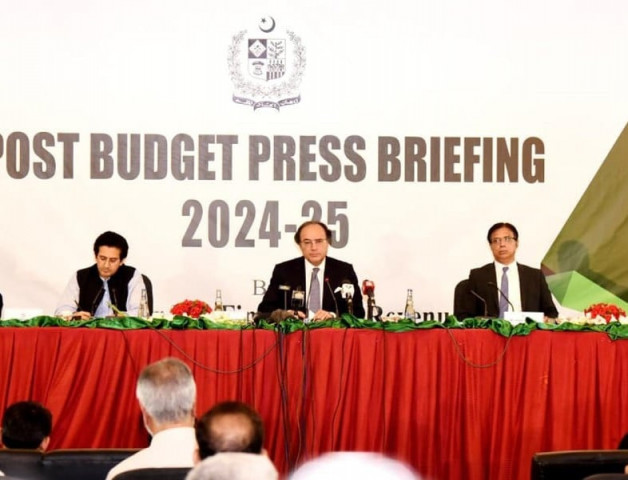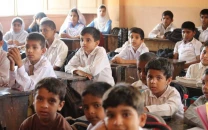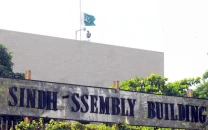Govt aims to boost tax-to-GDP ratio to 13% by 2027: FM Aurangzeb
In post-budget press conference, the finance minister says petroleum development levy will be increased gradually

Reiterating the pressing need for reforms and broadening of the tax base, Federal Minister for Finance and Revenue, Senator Muhammad Aurangzeb asserted on Thursday that a tax-to-GDP ratio below 10 per cent was not sustainable.
“We have to take it up to 13 per cent in the next three years gradually,” the minister said while addressing the post-budget press conference in Islamabad.
He added that, according to international benchmarks, no country could sustain a 9.5 per cent tax-to-GDP ratio without external assistance. Hence, there is a dire need to enhance the tax-to-GDP ratio, he added.
He also underscored the importance of eliminating the undocumented economy with end-to-end digitisation to reduce human intervention as much as possible, make the tax mechanism transparent, and mitigate the chances of corruption.
The minister admitted that the Federal Board of Revenue (FBR) had not achieved the level of compliance and enforcement it should have.
He said that the government had introduced progressive taxes in the federal budget for the upcoming fiscal year 2024-25 to tax more those with high incomes.
He stated that the country needed to move towards broadening the tax base to make the economy sustainable. Therefore, it was imperative to bring retailers and wholesalers into the tax net to share the burden.
The minister said the government had launched a tax scheme for retailers and wholesalers, offering them voluntary registration. However, it was termed unsuccessful as of April 2024.
In May, he added, the FBR workforce mobilised itself, and as of now around 31,000 retailers had registered with the scheme.
He said the registration would continue, and tax would also be imposed from July 2024. “We have no other option but to get this sector into the tax net,” he remarked.
The minister said that the Point of Sale (PoS) scheme would be re-launched to eliminate cash transactions. In response to a question about the Petroleum Development Levy (PDL), he said it would be increased gradually in accordance with international oil prices.
The minister said that the exemptions and the 35% category of salary slabs were intact, adding that there were changes in other slabs.
The government increased the tax for non-salaried individuals up to 45 per cent, he added.
The minister said that, in terms of youth development, Pakistan had the third-largest freelancer population in the world.
Hence, keeping this reality in view, the government had provided record allocations for the Information and Technology sector to improve digital infrastructure and provide the youth with an enabling environment.
He said the country’s IT exports stood at $3.5 billion, which could be increased to $7 billion provided an enabling environment was given to the youth.
He admitted that proper financing was not provided to SMEs because banks had no appetite for them and assured that banks would now come up with specific schemes in three sectors, including agriculture, IT, and SMEs.
Talking about PSDP priorities, the minister said the government had focused on completing ongoing projects, allocating 81 per cent of funds for these schemes, while only 19 per cent was allocated for new schemes, which included important projects and those with foreign funding.



















COMMENTS
Comments are moderated and generally will be posted if they are on-topic and not abusive.
For more information, please see our Comments FAQ